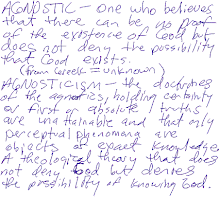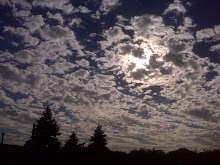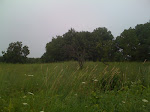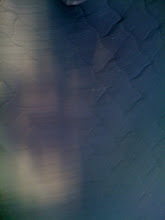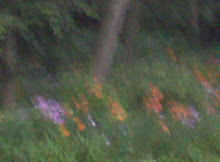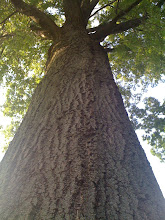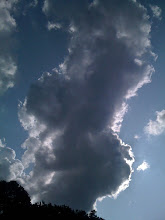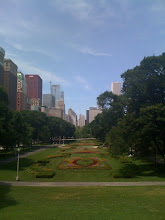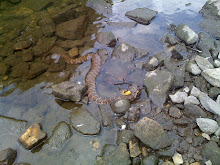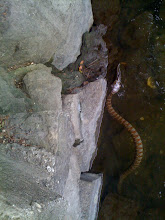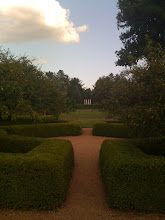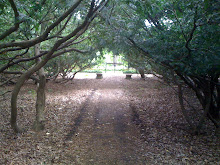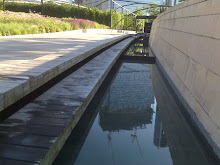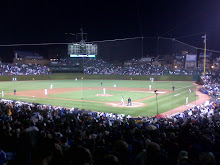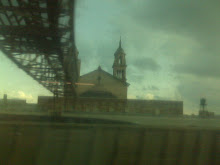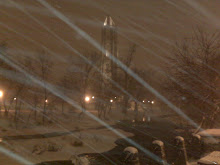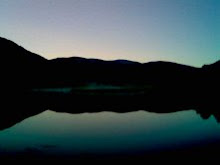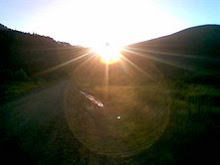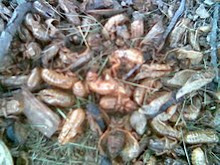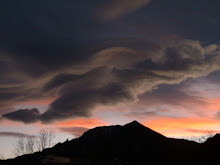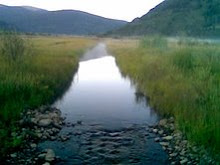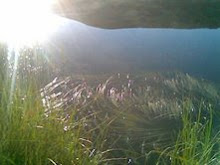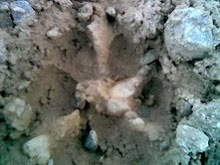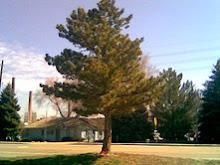+Shepherd.jpg) I dreaded going. I decided not to go several times supporting the decision with valid reasons like "his family doesn't even know me - I don't want to intrude." Then I thought, despite not seeing him in 12 or 13 years, despite never being fortunate enough to be among his closest friends, he was a wonderful guy, and I owed him my final respects. He served as a mentor for me in college recruiting me into a teaching assistant program which turned out to be a seminal experience. He always seemed to have a smile and energy to share.
I dreaded going. I decided not to go several times supporting the decision with valid reasons like "his family doesn't even know me - I don't want to intrude." Then I thought, despite not seeing him in 12 or 13 years, despite never being fortunate enough to be among his closest friends, he was a wonderful guy, and I owed him my final respects. He served as a mentor for me in college recruiting me into a teaching assistant program which turned out to be a seminal experience. He always seemed to have a smile and energy to share.Upon arriving, I was relieved to see a packed parking lot, and I hoped I could anonymously blend in. Growing up, I had attended a lot of funerals and wakes, but increasingly, my mortality weighs heavily upon me. In part, I think death becomes more and more real as I age. If I live to be as old as my father, I'm exactly in the middle of my time alive. If I live to be as old as Rob, then I have about a year or so left.
Also, as a father, death haunts me in a way that it never before did. The thought of the vacuum my death would leave in the lives of my boys pains me. Even with a strong extended family base, even knowing the amazing ability of humans to adapt, survive and thrive, the absence of a parent in a child's life is immense. And this says nothing of the impact my love for my children has on making the thought of my own death poignantly painful in a way not before possible.
Furthermore, my wandering agnostic path has removed any comfort I may have felt in the past that the hurt in human loss, that the finality in death is mitigated by the soul's journey after life. Some would argue that this view may make possible a more direct relationship with the present moment, but in this present moment I find myself squirming in my skin to avoid the graphic shock to my psyche of a young father's death.
When I pulled open the front door of the funeral home, I saw two familiar faces and walked toward them. I had seen one of the men a couple years ago and stayed in touch over the years. He was my professor, mentor and friend in college. He was of course Shep's mentor and friend as well. I hadn't seen the other man in near twenty years. I was happy to see them, curious to hear about their lives, and relieved that I could inch my way up the viewing line in the company of other living, human beings. For a brief moment I forgot where I was and why I was there.
It's always odd at a funeral/wake. People seem to laugh a lot, and discuss things seemingly inappropriate for the setting, understandably to distance themselves from death which is tangibly at hand. And then again, death is natural too, the formality we show death in ceremony and ritual is only more recently sanitized, sterilized and made stiff. I think of the old fashioned Irish wake in the family's home, with several days of singing, eating, drinking and crying to celebrate living which includes dying.
As we caught up and made our way forward in the queue, we viewed picture boards of Shep. They started with shots of him in college from the time we knew him, followed by photos of his childhood and adolescence. The question hit me as I looked at the photos, "what does it mean that this young man is no more?" We inched our way along the long line making several turns at the back of the room, around rows of folding chairs, smiling at the photos of Rob.
When we made another turn toward the final approach to the casket, I caught my first glimpse of the widow. I thought of my own wife having to stand in such a line, shaking hands of friends and strangers alike, having to hold it together when likely she wants nothing more than to utterly fall apart. The photo boards changed too. I noticed now photos of the deceased getting married and soon thereafter photos of him with his children. One photo in particular penetrated my chest like an arrow. It was a photo of Shep with his young son. The young son had a ball cap on, and looked up at his father from a blanket on the grass at a baseball game. The photo was taken from behind, and I felt like a voyeur looking in on their lives, I felt like a voyeur looking in on this funeral. I often feel like a voyeur looking in on my own life.
In a moment, the pain of imaging my boys at my funeral forced me out of my own skin, out of the room, away from the raw emotions that welled up in my chest, neck, head and eyes. I cheated myself of the expression of grief, swallowing it deeply and painfully into my chest, down into my gut.
I came back to the room intermittently, but never fully. I got my first sight of the young father in the casket. I heard empty platitudes in my head, "he looks at peace... at least he didn't suffer." I stopped myself and thought honestly, "he looks older, he looks dead." I turned and found myself face to face with is widow. I told her who I was and how I knew her husband. All I could say was "I'm so sorry, I'm so sorry. He was a wonderful man." She hugged me and I made my way to the casket.
I stood there. I saw the face of a young man who I knew, who I always enjoyed, of whom I thought highly. I tried to contemplate his life, his death, to contemplate death period. Right before moving to exit the room, his two year old son came into view, passing in front of me, climbing onto the kneeler before his dead father. For the briefest of moments I let the harsh reality of the situation into my chest, but almost as quickly I pushed it away. I thought this boy will probably not even remember his father other than in stories his mother tells him, other than in videos and photos. I saw the cycle of life and death, death lying right next to life which fidgeted awkwardly on the narrow, slippery kneeler. Neither seemed to notice the other. I realized the beautiful boy was too young to really understand his father was dead. I wasn't even sure if the boy approached as he recognized his father or if he just went to an open space in the crowded room.
I thought of approaching and offering the boy my hand, but I couldn't separate out what was my own discomfort verse what was the appropriate thing to do. I stood still with the two other men until the boy's mother approached and lovingly, patiently, without embarrassment or anger picked up her son saying something comforting.
I turned and exited the room exhaling slowly, breathing out the hurt, the pain and the nearness of death. We live knowing we will die. We understand this logically, but most of us don't truly accept this. I don't. We push death away even when at a funeral. We create elaborate systems of thought, world view constructs, theism, youth preserving, death defying lives to postpone and soften the brutal, albeit natural blow of death.
I've previously drawn comfort from knowing that a time may come when I'm ready to release my grip on life. I saw my father make peace with death. I've heard of others advanced in age saying they were ready to die, even tired of living. At the moment, I'm always tired, but not ready to give up this living that I know. It is after all, all I know. I'm afraid of dying. The thought of being without those closest to me pains me seemingly beyond my coping skills and comprehension.
My heart goes out to a young mother, to children who barely had time to know their father. I try to pull back into my skin now that I'm safely at home. My boys are playing together, they come to my side from time to time as I type, then I'm alone again with these words that attempt to make sense out of the inexplicable. I search for the meaning in all of this, wondering seriously if there is meaning behind life.
At the least, I'm reminded that life is always too short. I try to turn the shock of this event into energy to live more fully. I try to be with the rawness of this young man's tragic passing, to go forward in living not paralyzed by fear, nor denying death, but living guided by a curiosity and an appetite for all this world has in store for me and I for it.
I'm turning up the stereo, selecting my Pandora quick mix. I'm going to play with my boys on a pleasant Saturday morning. Death Cab for Cutie's I Will Follow You into the Dark comes on...
R.I.P. Shep






